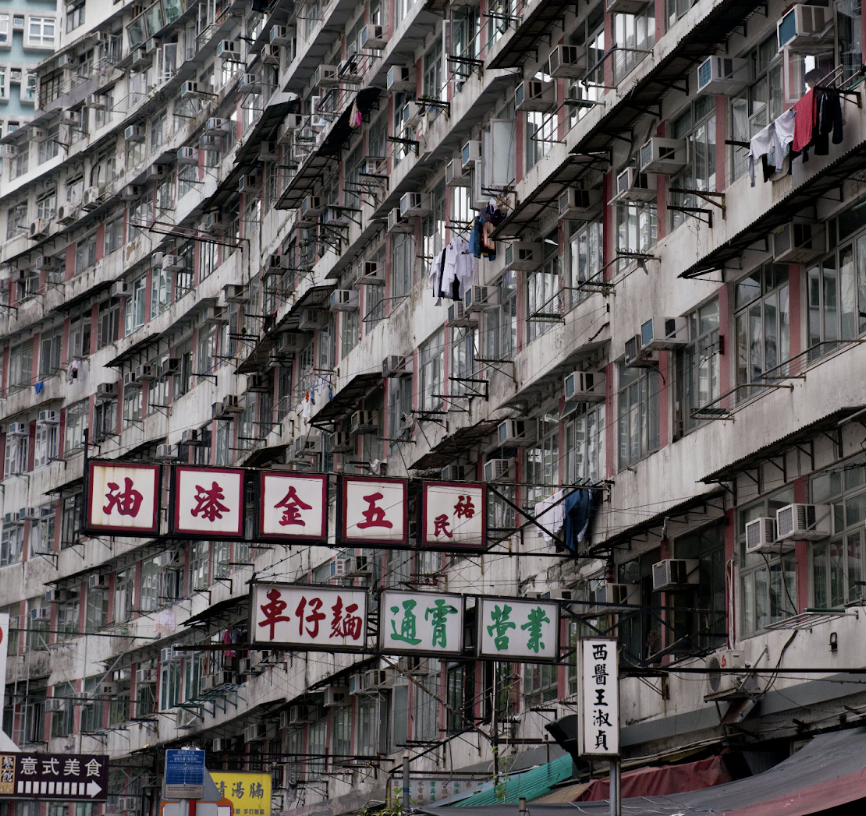The Evolution of the Hong Kong Property Market

Hong Kong, long renowned as a global financial center and metropolitan hub, has witnessed an intriguing phenomenon – a sudden decline in its once-coveted housing prices. Various environmental factors, such as the 2019 protests against the National Security Law and the aftermath of the COVID-19 pandemic, have contributed to this shift. Thus, a comprehensive chronology and analysis of the evolution in Hong Kong's property market, the factors that precipitated the decline, and its implications for residents and potential investors is warranted.
The property market in Hong Kong experienced a significant boom in 2008, following the global financial crisis. This surge in prices was fueled by an influx of capital, which helped expand the Hong Kong housing bubble. From 2008 to 2013, dwelling prices skyrocketed by a staggering 134% (95.7% inflation-adjusted). Despite a market slowdown in the first half of 2014, house prices surged again by 41.5% (35.5% inflation-adjusted) between the second half of 2016 and the first half of 2018 (Global Property Guide, 2024). The primary drivers propelling Hong Kong's housing boom over the past decades were government regulations on development, currency stability, and low-interest rates. In 2008, the US housing bust caused short-term interest rates to plummet to nearly 0%. As the Hong Kong dollar is pegged to the US dollar, short-term interest rates in Hong Kong followed suit (Living Economics, 2015). Concurrently, the government-controlled supply of land continued to diminish, further fueling the housing frenzy.
Amid this frenzy, JLL, a real estate and investment management company, warned that Hong Kong housing prices could fall in 2019 and onwards. They cite the trade war hurting business confidence, falling Hong Kong stock prices, the U.S.-China trade war, and Hong Kong's reliance on mainland Chinese demand as key factors pressuring the housing market. Other analysts like UBS and CLSA also predicted price drops of around 15% over the next year due to rising interest rates, a weaker Chinese yuan, and economic concerns. However, some experts note that previous housing crashes like the 60-70% drop from 1997-2003 were far worse. After the recent tripling of prices since the financial crisis, even a 20% decline would improve affordability and is not seen as a major systemic risk by some analysts.
Indeed, the highs and lows of the housing market are often volatile, and recently to many’s chagrin, the Hong Kong property market has hit a stagnation point. When you buy a home, you typically also buy the land your home sits on, but there’s another option: a land lease. In a land lease deal, you’re purchasing just the dwelling and paying rent on the land to the landowner. In short, land lease sales have plummeted to their lowest levels since 2009, severely impacting the government's revenue stream, which relies on leases for more than half of its earnings from real estate (Shu-Ching Jean Chen, 2023). This downturn is partially attributed to the government's decision not to sell at bids below its assessed values, but also to a supply glut. The oversupply was exacerbated by the surge in construction development in 2019, which left a glut of properties on the market due to widespread protests, political instability, and the subsequent COVID-19 pandemic (Yu, 2023). Consequently, demand for commercial property has drastically decreased, with the second-hand property market's average turnover ratio between 2017 and 2023 standing at a mere 3.7%, compared to 8.7% before the cooling measures took effect in 2010 (Kam, 2023).
The implications of this stagnation have been far-reaching. The slump has adversely impacted the share prices of major Hong Kong developers, some of the wealthiest families, such as CK Asset Holdings and Sun Hung Kai Properties, who experienced significantly worse performance in the stock market in 2023. New World and Henderson Land lost more than 15% from mid-2023 (Yu, 2023). This recent shift in supply and demand dynamics is poised to give renters the upper hand and potentially facilitate a decrease in home prices for the first time since the boom. One mitigating factor for Hong Kong is the low impact of mainland Chinese housing developers. Projects from mainland China must go through local agents for sale, and any effects from the Chinese market are less pronounced, as their market share is relatively small.
However, the most significant risk to Hong Kong's property market is a prolonged high-interest rate environment, which could further increase mortgage costs. As UBS China property market analyst Mark Leung stated to CNBC, "Longer runs will be a geopolitical risk." (Kam, 2023).
Conclusively, Hong Kong's property market has experienced a remarkable transformation, from a housing boom fueled by low-interest rates and worldwide economic instability, to a stagnation period marked by oversupply, political instability within and outside of Hong Kong, and the COVID-19 pandemic. While the slump has adversely affected major developers and property values, it presents potential opportunities for renters and prospective homebuyers to enjoy more affordable prices. Nonetheless, the market's future trajectory remains contingent on navigating the challenges posed by future geopolitical risks and the potentially prolonged high-rate environment, which could continue the downturn in the housing market.
Works Cited:
Global Property Guide (2024). Hong Kong’s housing market remains depressed. Global Property Guide. [online] doi:https://www.globalpropertyguide.com/asia/hong-kong/price-history.
Kam, V. (2023). Hong Kong’s property prices won’t pop any time soon. Here’s why. [online] CNBC. Available at: https://www.cnbc.com/2023/10/27/hong-kong-property-sales-may-surge-after-easing-measures-prices-may-not.html.
Living Economics (2015). Living Economics: Hong Kong Housing Boom. [online] Available at: https://livingeconomics.org/article.asp?docId=336.
Olsen, K. (2018). Hong Kong housing prices could fall 25 percent next year if trade war worsens. CNBC. Available at: https://www.cnbc.com/2018/11/15/hong-kong-housing-prices-could-fall-25-percent-on-trade-war-jll.html.
Shu-Ching Jean Chen (2023). Hong Kong Property Market Enters A Great Stagnation. Forbes. [online] 29 Nov. Available at: https://www.forbes.com/sites/shuchingjeanchen/2023/11/28/hong-kong-property-market-enters-a-great-stagnation/?sh=3d07a69030aa.
Yu, E. (2023). Hong Kong’s Property Market Is a Mess—and the Fed Is Partly to Blame. [online] WSJ. Available at: https://www.wsj.com/articles/hong-kongs-property-market-is-a-messand-the-fed-is-partly-to-blame-22ac7ebe.

